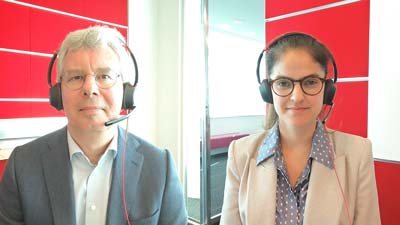Retirees are being “thrown to the retail wolves” – left to fend for themselves as soon as they walk out the door on the last day of work. While workers in the accumulation stage of retirement saving are treated with kid gloves, once you have access to your pension pot it is all hard sell and product pushing.
“When you are saving for retirement, all the information you receive is done with a light touch. It is gentle, low cost and takes advantage of inertia,” says Nigel Aston, head of defined contribution for State Street Global Advisors. “But once you retire you are thrown to the retail wolves. The industry is in your face, heavy handed, high charge and advice driven.”
Aston says that this approach may have suited the old guard; those retiring before April last year before pension freedoms activated, but it was not suitable for the masses.
“Before last year, 90% of retirees bought an annuity. The only people who had to navigate the post-retirement world of investment were the 10% who could afford a good adviser,” he said. “Now, only 10% of people buy an annuity at retirement, and the remaining 90% are ill-equipped to deal with the onslaught. The industry needs to adapt to the new breed of customer.”
Aston said that the post-retirement needed to better match pre-retirement – a gentle attitude, where doing nothing still gets you results, with a mass-mentality of being “all in it together”.
He cites Target Date Funds – which allow pension scheme members to stay invested post retirement, with money managed in a pool alongside other individuals who retired the same year – as one example of the industry getting it right.
“I don’t think we will ever get to a point where everyone will be able to, or even want to make major investment decision for themselves,” he said. “It is not right for people to have to DIY retirement investing, they should be able to easily outsource to a professional.”
Technology Lags Product Innovation
Dan Kemp, speaking the Morningstar Perils in Pensions debate this week said that even where financial services had innovated to help meet the needs of investors in retirement, technology was restricting their impact.
Kemp, who is chief investment officer of Morningstar Investment Management said that online investment platforms were not set up to pay income monthly to investors – something particularly needed in retirement.
“We run multi-asset portfolios with the income investor in mind, but without the platforms putting the distribution channels in place we are unable to deliver the yield to investors,” he said. “How can product providers innovate if the infrastructure does not keep up?”





























